As the UK business community attempts to navigate the impact of the first global pandemic in recent history, Startups Geek posed the question: when the economy and the business world regain some measure of normality, where in the UK would be the best place to start a new business?
Our team has delved into the data, and we’ve put together our first ever ranking of 40 towns and cities across the UK.
| See also → |
|---|
We looked at the business financing cost of starting a business in different geographic areas, as well as other metrics such as internet speed, graduate retention rate and employment setup costs across the United Kingdom.
Some of the results are surprising, for example:
- Did you know that the city of Hull has the fastest average internet speed in the world, coming in at 131.4mb/s?
- The cost of starting a business in Sunderland is around £250,000 less than in London over five years.
How did your home town or city fare compared to other areas? Read on to learn how your favourite city compares to the rest of the UK.
Table of contents
Methodology
To calculate the results and rank the 40 locations, we have used a model based on a hypothetical startup business consisting of the following five roles:
- Operations manager
- Sales manager
- Marketing manager
- Designer
- Web developer
Our methodology to calculate the rankings was as follows: a scoring system where 50% of the points are based on startup costs: the combined cost of the startup team members plus enough office space for them (we used 40 square metres for five people in our calculations). The other 50% of the points came from the other metrics: startup survival rate, internet speed, number of universities, and graduate retention rate.
The rankings: best UK cities to start a business 2020
Jump to: contents ↑ | cities ↑ | map ↓ | metrics ↓
Here we have it: our top 40 UK towns and cities in which to start a business. The results show a large geographic spread, with the top five locations covering the north and south of England, as well as Wales and Northern Ireland.
- Canterbury (the winner!)
- Sunderland
- Liverpool
- Swansea
- Belfast
- Salford
- Norwich
- Leicester
- Plymouth
- Edinburgh
- Stoke-on-Trent
- Bolton
- Hull
- Sheffield
- Exeter
- Derby
- Nottingham
- Glasgow
- Newcastle
- Brighton
- Cardiff
- Blackburn
- Leeds
- Birmingham
- Aberdeen
- Bradford
- London
- Southampton
- Bristol
- Portsmouth
- Manchester
- Bath
- Bournemouth
- Oxford
- Coventry
- Wakefield
- Oldham
- Milton Keynes
- Reading
- Cambridge
Cities data
Jump to: contents ↑ | rankings ↑ | map ↓ | metrics ↓
Jump to a city → Aberdeen • Bath • Belfast • Birmingham • Blackburn • Bolton • Bournemouth • Bradford • Brighton • Bristol • Cambridge • Canterbury • Cardiff • Coventry • Derby • Edinburgh • Exeter • Glasgow • Hull • Leeds • Leicester • Liverpool • London • Manchester • Milton Keynes • Newcastle • Norwich • Nottingham • Oldham • Oxford • Plymouth • Portsmouth • Reading • Salford • Sheffield • Southampton • Stoke-On-Trent • Sunderland • Swansea • Wakefield
Interactive map
Map unavailable
Aberdeen (#25)
Jump to: contents ↑ | rankings ↑ | cities ↑ | map ↑ | metrics ↓

Aberbeen is one of three Scottish cities to rank in our top 40.
Unfortunately Aberdeen ranked lower than rivals Edinburgh and Glasgow, due mainly to surprisingly high staff costs.
Bath (#32)
Jump to: contents ↑ | rankings ↑ | cities ↑ | map ↑ | metrics ↓

Despite being a beautiful and historic city, Bath is positioned in the bottom 10 of our top 40 locations.
Unsurprisingly, it’s quite an expensive place to start a business, but it does have the highest startup survival rate on our list, meaning that businesses that can cope with the high costs are quite likely to do well.
Belfast (#5)
Jump to: contents ↑ | rankings ↑ | cities ↑ | map ↑ | metrics ↓

Belfast is the only Northern-Irish location to appear in our ranking, but it did so in style, appearing in position 5!
The high position was achieved due to some healthy metrics including low office rental costs and low team member salaries.
Birmingham (#24)
Jump to: contents ↑ | rankings ↑ | cities ↑ | map ↑ | metrics ↓

The West-Midlands city of Birmingham is traditionally thought of as a strong business location, and is the second-largest city by population on our list after London.
But Birmingham fell in the lower half of our ranking when scored using the metrics we used for comparison. Notably is has quite a low business survival rate.
Blackburn (#22)
Jump to: contents ↑ | rankings ↑ | cities ↑ | map ↑ | metrics ↓
Blackburn, in the Northwest of England, might not be somewhere that you have thought of as a UK business hub, and it is one of the smallest locations in our top 40 by population.
But the town almost reached the top 20 of our rankings, due mainly to the low costs associated with the area. Notably, Blackburn has the lowest weekly earnings out of all 40 locations.
Bolton (#12)
Jump to: contents ↑ | rankings ↑ | cities ↑ | map ↑ | metrics ↓
Bolton is geographically close to some others in our rankings, including Blackburn and Manchester, but it scored higher than both.
Bolton just missed out on appearing in our top 10, but is still our highest-scoring location in the northwest of England.
Bournemouth (#33)
Jump to: contents ↑ | rankings ↑ | cities ↑ | map ↑ | metrics ↓

Another attractive seaside town appearing in our top 40, Bournemouth is a favourite for holiday-makers but perhaps not for entrepreneurs, coming in within our bottom 10.
Bournemouth scored solid mid-table results for most of our metrics but came bottom for internet speed, with an average download speed lower than all other 39 locations on our list.
Bradford (#26)
Jump to: contents ↑ | rankings ↑ | cities ↑ | map ↑ | metrics ↓
Residents of Bradford might be disappointed to see that they ranked only three positions lower than nearby rival Leeds!
But considering Bradford is almost 40% smaller by population than Leeds, this is no mean feat.
Brighton (#20)
Jump to: contents ↑ | rankings ↑ | cities ↑ | map ↑ | metrics ↓
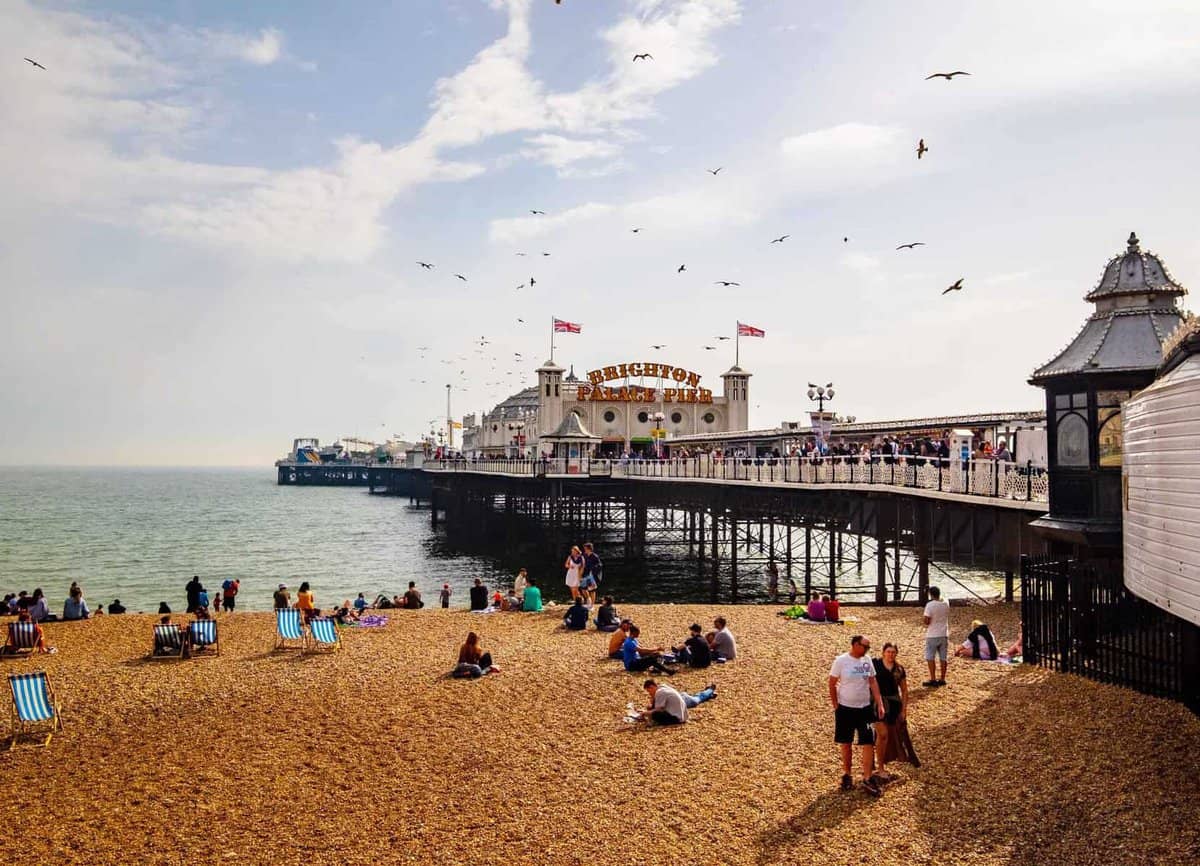
This sunny seaside town is a favourite for holiday-makers on the south coast. Brighton just scraped into our top 20, comparing favourably to other nearby locations.
Brighton is in the top 3 for internet speed, losing only to Hull and Portsmouth.
Bristol (#29)
Jump to: contents ↑ | rankings ↑ | cities ↑ | map ↑ | metrics ↓

The south-west city of Bristol just scraped into the top 30 on our rankings. Locals may be pleased that Bristol beat the neighbouring city of Bath by a few places!
Bristol just missed out on a top-5 position for internet speed, being pipped at the post by Plymouth.
Cambridge (#40)
Jump to: contents ↑ | rankings ↑ | cities ↑ | map ↑ | metrics ↓

Oh dear, sorry Cambridge. You came last, position 40 out of 40. Ouch!
A low 5-year startup survival rate, along with high employment costs, contributed to the East-Anglian city receiving such a low score. Unfortunately, quality of university wasn’t a factor in our scoring system.
Canterbury (#1)
Jump to: contents ↑ | rankings ↑ | cities ↑ | map ↑ | metrics ↓

Our winner! Canterbury’s combination of relatively low staff costs, as well as the low price of office space rental, helped it to come top of our list.
Aside from London, it also comes high on the list for number of universities, with three located in the city.
Cardiff (#21)
Jump to: contents ↑ | rankings ↑ | cities ↑ | map ↑ | metrics ↓
Cardiff was among a couple of Welsh locations in our top 40, but unfortunately ranked far lower than rival Swansea, which appeared in our top 5.
Notably, Cardiff has some of the cheapest office space in the whole of the UK, but this wasn’t quite enough to pull the city into the top 20.
Coventry (#35)
Jump to: contents ↑ | rankings ↑ | cities ↑ | map ↑ | metrics ↓
The West-Midlands city of Coventry didn’t perform well in our scoring system, and landed at 35 in the bottom 5 of the list.
Coventry has a very low graduate retention rate, which contributed to its low score compared to nearby rival Birmingham.
Derby (#16)
Jump to: contents ↑ | rankings ↑ | cities ↑ | map ↑ | metrics ↓
Derby locals might be pleased that the East-Midlands town ranked one position higher than nearby Nottingham, to land a place solidly in the top 20.
Perhaps surprisingly, Derby came #2 for weekly earnings, scoring higher than all other locations aside from London.
Edinburgh (#10)
Jump to: contents ↑ | rankings ↑ | cities ↑ | map ↑ | metrics ↓

The beautiful Scottish city of Edinburgh just managed to achieve a place in our top 10, and was the highest scoring of the Scottish locations included in our top 40.
Edinburgh did well across the board, appearing in the top 10 for most of our individual metrics, which contributed to its overall position.
Exeter (#15)
Jump to: contents ↑ | rankings ↑ | cities ↑ | map ↑ | metrics ↓
Exeter is one of the south-western-most locations on our list, with only Plymouth being further out in that direction.
Exeter scored bottom of the list for graduate retention rate, with only 13% of graduates remaining in the area post-university. Despite this, Exeter ranked respectably at 15 out of 40.
Glasgow
Jump to: contents ↑ | rankings ↑ | cities ↑ | map ↑ | metrics ↓

The Scottish city of Glasgow is a bustling business hub, but despite this, the city only just achieved a mid-table result at 18 out of 40.
Perhaps due to the high competition, Glasgow ranked in the bottom 5 for startup survival rate, which is one of the factors resulting in its relatively low overall position.
Hull (#13)
Jump to: contents ↑ | rankings ↑ | cities ↑ | map ↑ | metrics ↓
Hull residents probably already know this fact, but perhaps our readership doesn’t: Hull has the fastest internet speeds, not only in the UK, but in the whole world.
This is one of the factors that helped Hull to achieve a position close to our top 10.
Leeds (#23)
Jump to: contents ↑ | rankings ↑ | cities ↑ | map ↑ | metrics ↓
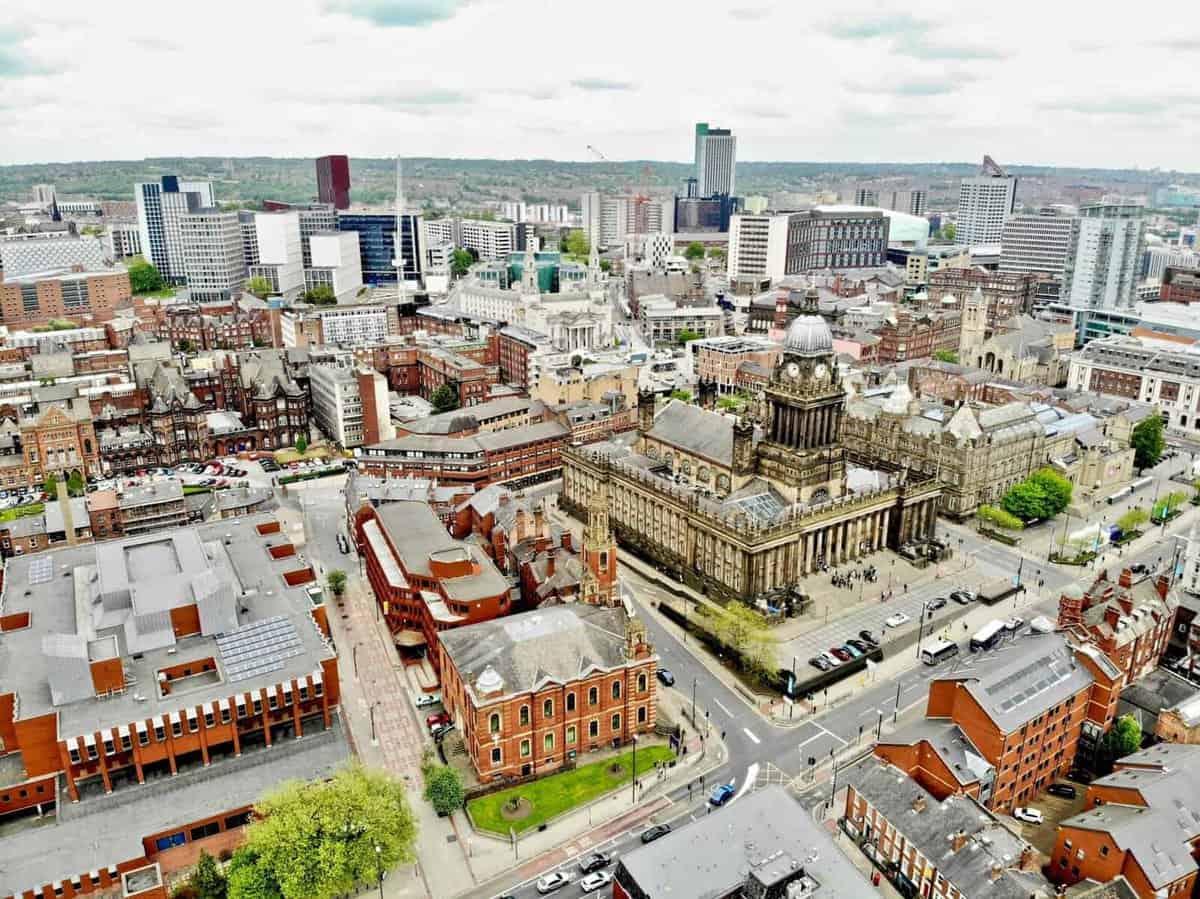
The Northern-England city of Leeds is one of several in our top 40 which are often thought of as business hubs but which ranked lower in our top 40 due to high costs.
A fairly high business survival rate and high number of universities were countered by high office and staff costs to result in a mid-table position for Leeds.
Leicester (#8)
Jump to: contents ↑ | rankings ↑ | cities ↑ | map ↑ | metrics ↓
The East-Midlands city of Leicester ranked well thanks to low overall costs, despite having a poor startup survival rate.
Locals might be disappointed to rank lower than nearby Derby and Nottingham, but hey, a top 10 position is still good!
Liverpool (#3)
Jump to: contents ↑ | rankings ↑ | cities ↑ | map ↑ | metrics ↓

Scousers rejoice! The North-Eastern city of Liverpool did very well in our scoring system, coming in at position 3 out of 40.
Interestingly, Liverpool was conversely in the bottom 3 for startup survival rate, but this didn’t detract too much from the overall score in our points-based ranking system.
London (#27)
Jump to: contents ↑ | rankings ↑ | cities ↑ | map ↑ | metrics ↓

Yes, of course London is a great city! No, we aren’t saying that despite all the economic evidence, London is a terrible place to start a business.
But using our points-based scoring system, London scored low on costs, internet speed and a number of other metrics. Except for universities, because there are 24 (!!) of them in the city.
Manchester (#31)
Jump to: contents ↑ | rankings ↑ | cities ↑ | map ↑ | metrics ↓

A number of factors, including ranking 37 out of 40 for startup survival rate, resulted in the North-West city of Manchester falling into the bottom 10 of our list.
Other nearly places including Bolton and Blackburn ranked higher in our list for the same reasons.
Milton Keynes (#38)
Jump to: contents ↑ | rankings ↑ | cities ↑ | map ↑ | metrics ↓
Unfortunately for Milton Keynes, the metrics we used in our scoring system resulted in a poor overall performance for the town.
Factors such as slow internet speed and not having any universities all counted towards a near-bottom of the table ranking of 38.
Newcastle (#19)
Jump to: contents ↑ | rankings ↑ | cities ↑ | map ↑ | metrics ↓
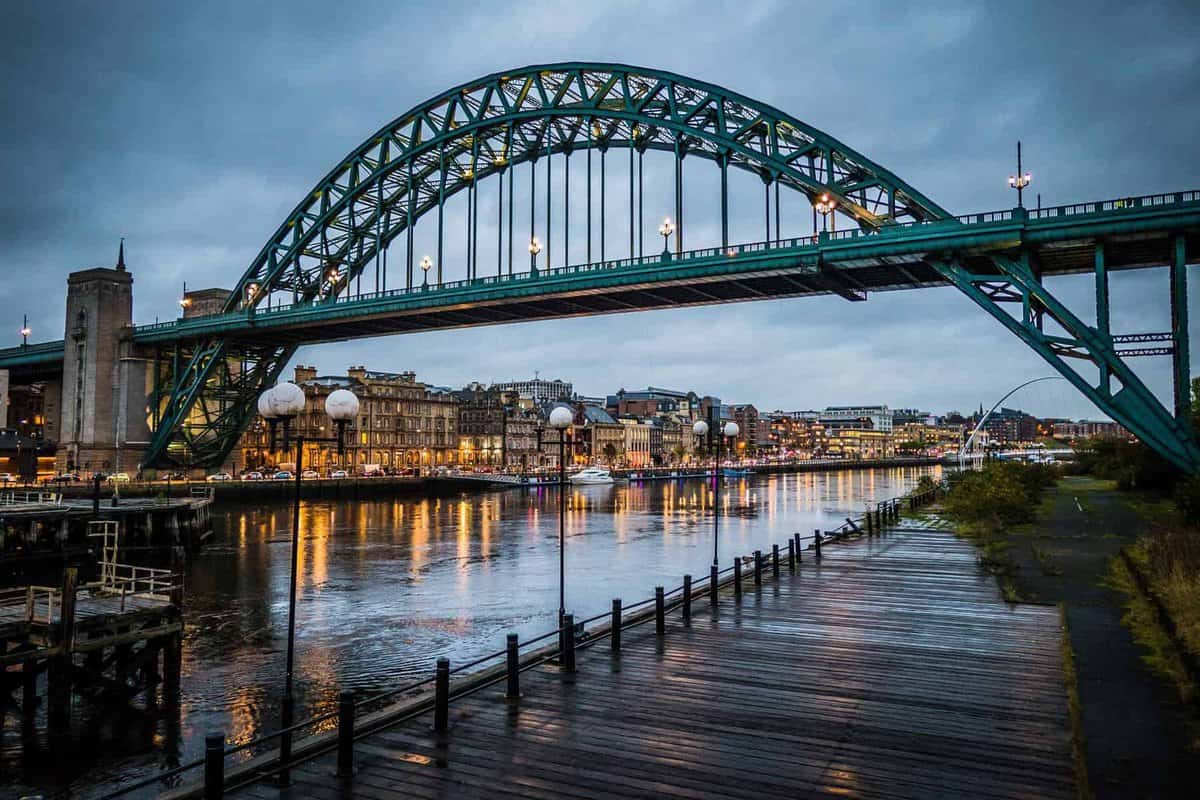
Newcastle gave a solid performance in our rankings, just managing to land above the middle of the table at 19.
This is a reflection of the city’s performance in most of our metrics, where it also landed somewhere in the middle of the charts.
Norwich (#7)
Jump to: contents ↑ | rankings ↑ | cities ↑ | map ↑ | metrics ↓
Well done, Norwich. The top-10 position was achieved by having some of the lowest office space prices in our list, along with solid performance in our other metrics.
The nearest in our list geographically is Cambridge, which came right at the bottom in position 40.
Nottingham (#17)
Jump to: contents ↑ | rankings ↑ | cities ↑ | map ↑ | metrics ↓
A decent result for Nottingham, achieving a position comfortably in the top half of the table, despite having one of the lowest business survival rates.
The East-Midlands city was helped by having a higher than average number of universities, and reasonable office space prices.
Oxford (#34)
Jump to: contents ↑ | rankings ↑ | cities ↑ | map ↑ | metrics ↓

Another historic UK city which didn’t perform very well. However local residents and the student population might be pleased that Oxford appeared 6 places higher than academic rival Cambridge, which came very bottom.
One area where Oxford did excel was in startup survival rate, with a rate of 44.2% putting it in position 3 overall for this metric.
Plymouth (#9)
Jump to: contents ↑ | rankings ↑ | cities ↑ | map ↑ | metrics ↓

A very respectable top 10 position for this south-west coastal city.
While Aberdeen, at position 25, was the north-eastern-most location in our list, Plymouth is the south-western-most, with the geographically-closest locations being Exeter and Bournemouth.
Portsmouth (#30)
Jump to: contents ↑ | rankings ↑ | cities ↑ | map ↑ | metrics ↓
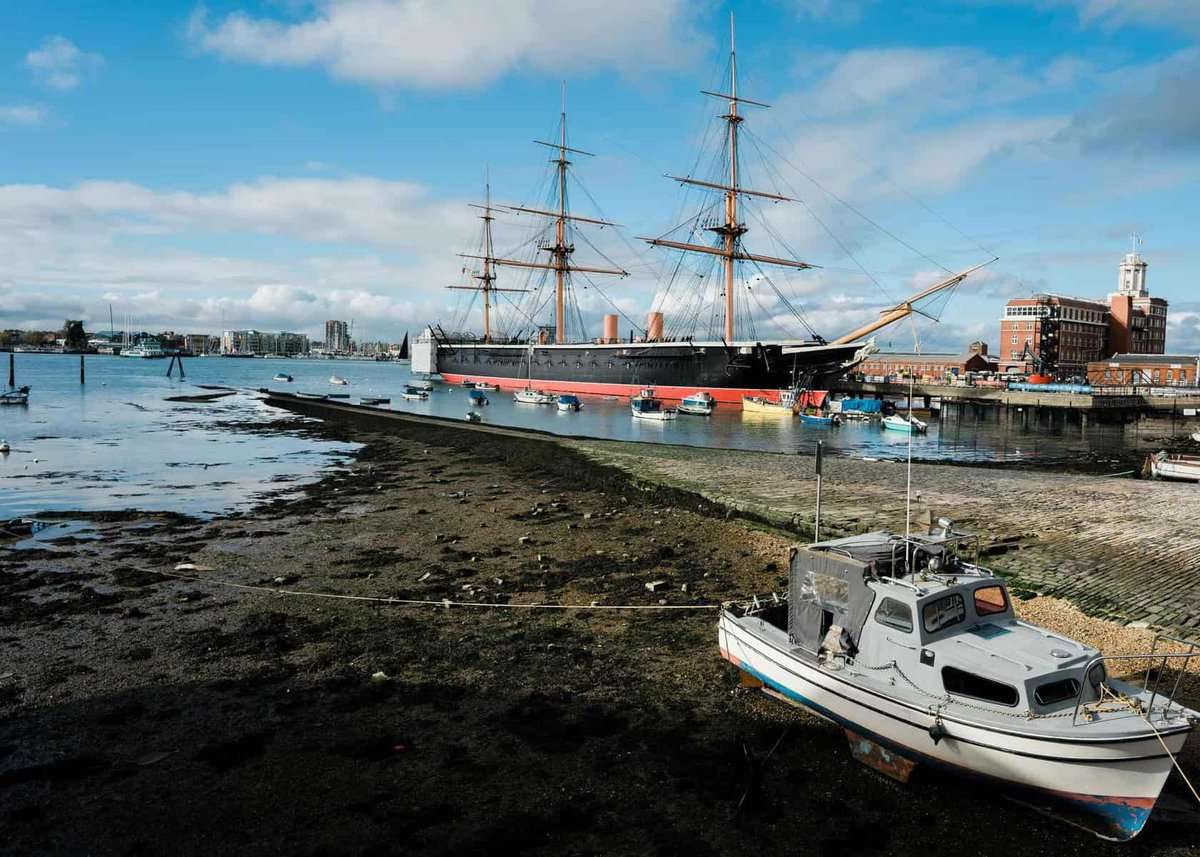
Probably unsurprisingly for an island nation, Portsmouth is one of several places in our top 40 which is located on the coast.
Unfortunately Portsmouth doesn’t compare favourably to some of the other coastal locations, due in part to its very poor startup survival rate position of 39 out of 40.
Reading (#39)
Jump to: contents ↑ | rankings ↑ | cities ↑ | map ↑ | metrics ↓
Reading came almost last in our ranking, beating only Cambridge to avoid the bottom spot.
For most of the metrics we used in our calculation, Reading performed poorly, which resulted in this disappointing overall position in the list.
Salford (#6)
Jump to: contents ↑ | rankings ↑ | cities ↑ | map ↑ | metrics ↓
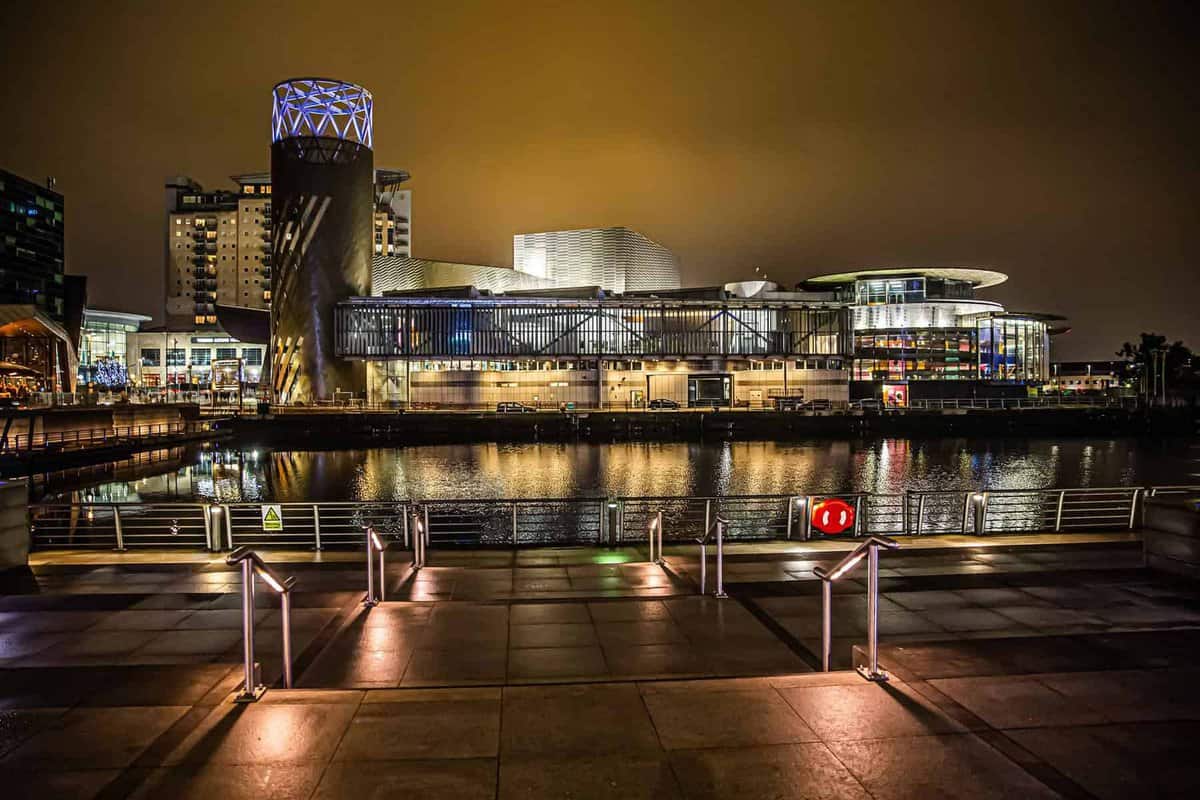
Nice work, Salford! The only thing to complain about here is that you didn’t quite make it into our top 5.
Despite being very (very!) geographically close to Manchester, the difference in ranking position is night and day, with Manchester landing at 31.
Sheffield (#14)
Jump to: contents ↑ | rankings ↑ | cities ↑ | map ↑ | metrics ↓

The Yorkshire city of Sheffield did well in our scoring calculations, managing to land within the top 15.
Sheffield was positioned well for most of our metrics, but notably ranked very low for average internet speed, which dragged down the overall position.
Southampton (#28)
Jump to: contents ↑ | rankings ↑ | cities ↑ | map ↑ | metrics ↓
The south-coast town of Southampton managed to achieve a higher position than nearby coastal rivals Portsmouth and Bournemouth.
Southampton scored very low for graduate retention rate: despite the lovely coastal views, the graduates sadly don’t stick around!
Stoke-On-Trent (#11)
Jump to: contents ↑ | rankings ↑ | cities ↑ | map ↑ | metrics ↓
Stoke-On-Trent is a bit of a dark horse in our results: you might not think of it as a business hotspot, however it’s circled geographically by several of our other top 40 including Derby, Manchester, Sheffield and Nottingham, yet it manages to rank higher than all of them!
Sunderland (#2)
Jump to: contents ↑ | rankings ↑ | cities ↑ | map ↑ | metrics ↓
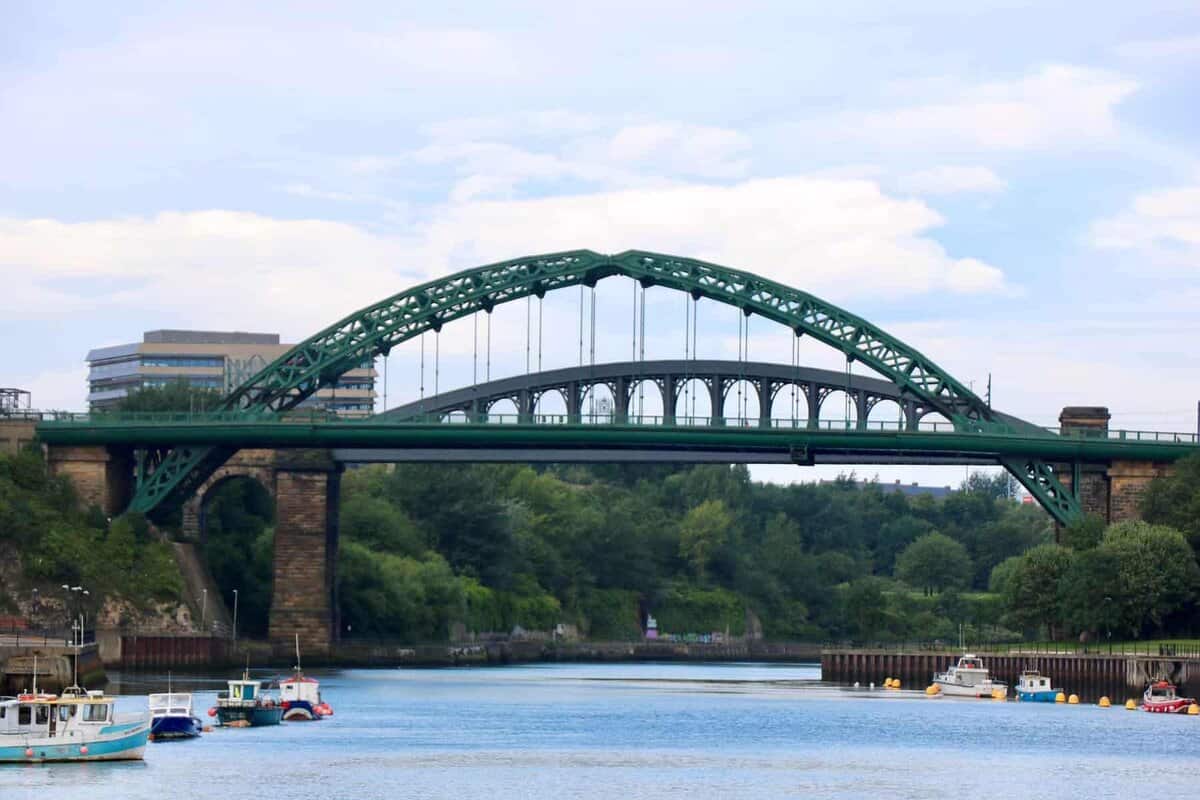
Congratulations, Sunderland, you came 2nd! Sunderland scored well across the board, but office space cost is where it shone, having the lowest cost office space out of our entire list.
Sunderland compared favourably to nearby Newcastle in our calculations, with the neighbouring city landing all the way down at number 19.
Swansea (#4)
Jump to: contents ↑ | rankings ↑ | cities ↑ | map ↑ | metrics ↓

Only a couple of Welsh locations made it into our list, but Swansea was the king of those!
Swansea performed similarly to rival Cardiff for many metrics in our scoring system, but it excelled for the cost of office space: the only place with lower-price offices in our list was Sunderland.
Wakefield (#36)
Jump to: contents ↑ | rankings ↑ | cities ↑ | map ↑ | metrics ↓

The Northern town of Wakefield unfortunately ranked quite a lot lower than nearby Leeds and Bradford.
But considering it’s less than half the size of Leeds by population and no universities to help lift its score, the town performed acceptably as a location to start a business.
Metrics
Jump to: contents ↑ | rankings ↑ | cities ↑ | map ↑
Jump to a metric → Earnings • Startup survival rate • Office space costs • Internet speed • Salaries • Universities • Graduate retention rate
Average weekly earnings
Jump to: contents ↑ | rankings ↑ | cities ↑ | map ↑ | metrics ↑
[visualizer id=”17591″]Startup 5-year survival rate (%)
Jump to: contents ↑ | rankings ↑ | cities ↑ | map ↑ | metrics ↑
[visualizer id=”18587″]Office space cost per sq.ft.
Jump to: contents ↑ | rankings ↑ | cities ↑ | map ↑ | metrics ↑
[visualizer id=”18593″]Internet speed
Jump to: contents ↑ | rankings ↑ | cities ↑ | map ↑ | metrics ↑
[visualizer id=”18570″]Salaries
Jump to: contents ↑ | rankings ↑ | cities ↑ | map ↑ | metrics ↑
[visualizer id=”18599″]Universities
Jump to: contents ↑ | rankings ↑ | cities ↑ | map ↑ | metrics ↑
[visualizer id=”18605″]Graduate retention rate (%)
Jump to: contents ↑ | rankings ↑ | cities ↑ | map ↑ | metrics ↑
[visualizer id=”18610″]Full data set: all cities and metrics
Jump to: contents ↑ | rankings ↑ | cities ↑ | map ↑ | metrics ↑
Sources
Jump to: contents ↑ | rankings ↑ | cities ↑ | map ↑ | metrics ↑
- BusinessFinanced.co.uk
- Centreforcities.org
- Hesa.ac.uk
- ONS.gov.uk
- Payscale.com
- Paymentsense.com
- Ofcom.org.uk
- Wikipedia.org
- Comparethemarket.com

